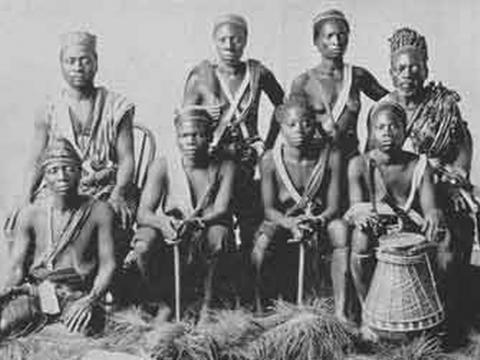By: Makalay Saidiatu Sonda
When I call myself a feminist, many people think it’s senseless because I’m a pan-Africanist too. In the eyes of many, pan-Africanism and feminism are two parallel lines that run in two opposite directions – they never meet.
Feminism is wrongly seen as a Western ideology. I always challenge this notion which I in fact call a myth. I think considering feminism as such is evidence of one’s shortsightedness.
I know many things about African history are not taught in schools – which came to us from Europe; therefore the ignorance can be understood. However anyone who researches and reads further about African history can clearly see that feminism is as African as it can be.
I have key examples from history that I can refer to. One is the Dahomey Warriors from Dahomey Kingdom. The Dahomey Kingdom (1625-1894) had an all-female warrior elite troop. These warriors, commonly known as Dahomey Amazons, were fearless and strategic. They protected their land and king with great bravery.
The Dahomey Warriors of Dahomey Kingdom in present day Benin were brave and ruthless soldiers whose history showed they represented a part of femininity that is hardly portrayed, celebrated or respected. According to the Africanhistory.com “they were strong, trained warriors, loyal, ready to die for their king and highly esteemed… without any sexual innuendo.”
This part of African history was fictionalized by the Marvel movie ‘Black Panther’, with the creation of the Dora Milaje Army featured in the film. Another example in history I can reference is, Queen Amina of Zaria. Amina was the first female to have ruled an African Kingdom for over 30 years during the sixteenth century. Amina was a great warrior and leader. She defended her kingdom and invented crucial military strategies and tactics. Because of her excellent military skills, she was allowed to be the leader of the Zazzau cavalry.
Amina became queen after her brother died 10 years after becoming king. Her excellent leadership and accumulated respect earned her this position. In her reign as queen, she introduced the metal armour and helmet to the military, she expanded her kingdom to its largest size ever, and this made her remove all obstacles that blocked direct access to the Atlantic coast for her people. This was important for local trade. In addition, she built walls around the city to protect her people. These walls are still up unto this day in Zaria, Northern Nigeria, and carry her name –‘ganuwar Amina’, Amina’s wall.
Another example is in recent history: Madam Ella Koblo Gulama of my country, Sierra Leone. She was born in Moyamba, Kaiyamba Chiefdom in 1921. Her father made sure she got an educated (at a time education for girls was not common). She attended high school and went to college. This (education) opened her path for realizing her dreams. She became a Paramount Chief succeeding her father after his death.
Madam Ella Koblo was also elected to Parliament as a Paramount Chief member for Moyamba District. She further went on to become the first female cabinet minister in Sierra Leone and Sub-Saharan Africa. History tells us that she was very much interested in the educational development in Sierra Leone, and she worked hard especially to promote girls’ education. She worked also to improve the lives and status of women in the country. So many recognitions are tied to her name and she was a recipient of many awards which include Member of the British Empire (MBE) in1959, the Order of the British Empire Award (OBE) in 1966 and the Order of the Rokel (From President Alhaji Ahmed Tejan Kabbah).
Africans who loathe feminism think feminism is un-African because they hold an untrue perception that the African woman’s role has always been in the kitchen – in the home to serve as caregivers and nothing more, nothing less. They carry with them the notion that an African woman is one that answers to a default ‘yes’ to everything by her husband and family even if her safety, wellbeing and freedom are threatened. However, history has shown us repeatedly that feminism has always been in Africa even though the term was probably not spelt out as “Feminism.” It shows that our female ancestors did not only confine themselves to the household and family unit, but they ventured out, took up challenges and conquered. It shows they ruled kingdoms, protected their lands and became many things more. Many things more: more than just mothers, wives, daughters and sisters.
Our history holds evident to the fact that women can be equal to men in capability, intelligence and skill; and that when given equal opportunities they can contribute remarkably well not just to their families but their communities and country as a whole. Our history screams on us that women should be given equal opportunities and benefits in order to achieve our fullest potentialities. I only hope we – especially the men – listen.
Copyright (c) 2020 Politico Online








